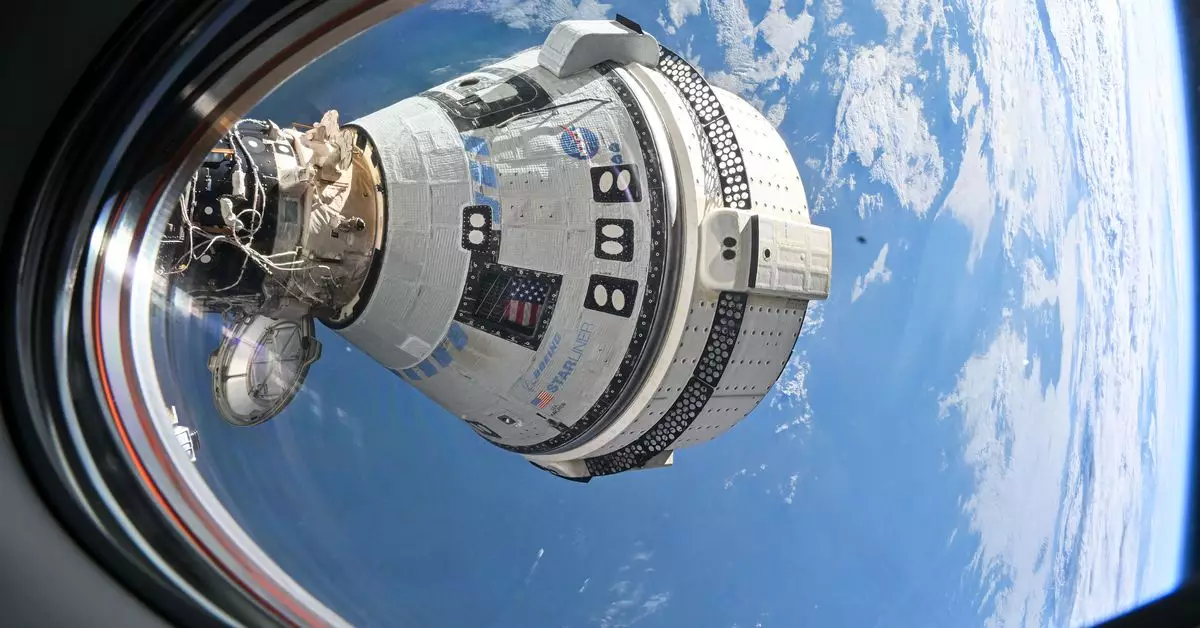In August, Boeing welcomed a new CEO, Kelly Ortberg, who is already confronting significant hurdles in the aerospace giant’s operations. Amidst ongoing public scrutiny and financial distress, Ortberg is considering a pivotal strategic shift: the potential divestiture of Boeing’s space division. Reports from The Wall Street Journal suggest that this initiative is still in the preliminary stages, but the implications are far-reaching. The focus appears to be on offloading projects tied to the Starliner spacecraft and its associations with the International Space Station (ISS).
Boeing is currently grappling with severe reputational damage linked to previous incidents, including the infamous fraud charges arising from the 737 Max crashes. This crisis has compounded existing issues surrounding the Starliner, which has faced setbacks, leading to extended missions for astronauts at the ISS. Additionally, the company recently experienced a setback when a Boeing-engineered satellite for Intelsat unexpectedly malfunctioned. Such incidents undermine investor confidence and pose a threat to Boeing’s longstanding legacy in aerospace.
Strategic Refocusing amid Financial Turmoil
Ortberg’s commentary during a recent earnings call emphasizes a fundamental philosophy for the company’s future: “We’re better off doing less and doing it better than doing more and not doing it well.” This reflection reveals the company’s struggle to create a cohesive strategy while avoiding distractions from its primary business operations. While commercial airplanes and defense systems remain focal points, the future of certain peripheral businesses hangs in the balance, hinting at a leaner, more efficient Boeing.
The financial outlook is concerning, with recent earnings reports indicating a staggering loss of $6.17 billion in just one quarter, underscoring Boeing’s need for immediate and impactful changes. The Starliner project alone has drained approximately $250 million from company resources, a figure that serves as a warning regarding the sustainability of unprofitable ventures. The company is bracing itself for continued financial strain, projecting additional losses through 2025.
Focus on Core Competencies and Upcoming Initiatives
Despite contemplating the sale of its space division, Boeing intends to retain oversight of key initiatives like the Space Launch System (SLS), which is pivotal for NASA’s Artemis program aimed at returning humans to the Moon. This decision implies that Boeing is not completely divesting from space technology but is instead opting to prioritize projects that align closely with its core competencies. Additionally, the company is expected to maintain its commercial and military satellite businesses, reflecting a strategy that couples focus with innovation.
As Ortberg steers Boeing through this turbulent period, the path ahead is fraught with challenges and complexities. However, if legislation and operational adjustments can be effectively administered, there lie opportunities for recovery and reinvention. The newly emerging strategies could potentially restore confidence among investors and consumers, ultimately allowing Boeing to reclaim its status as a leader in the aerospace industry. The coming months will be critical as Ortberg navigates the seismic shifts facing the company.


Leave a Reply